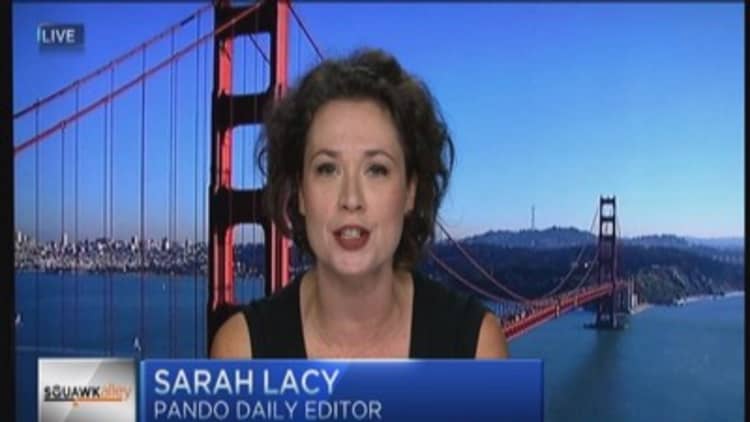A Silicon Valley rival to taxi app Uber has stepped into the simmering controversy surrounding the service by accusing it of running "their own NSA".
Rakesh Mathur, who became CEO of Uber rival Flywheel on Thursday, told CNBC by phone: "These people run their own NSA (National Security Agency). They know where people are and are not afraid to use the information which is appalling."
Spy on journalists
According to a report on Buzzfeed earlier this week, Emil Michael, Uber's senior vice president of business had outlined a plan to hire four researchers and four journalists to look into the personal lives of other journalists critical of the company.
Read MoreUber's PR missteps aren't hurting business ... yet
A day later, Buzzfeed released a report detailing how one of its reporters was tracked using Uber's "God View" – which allows drivers to see all of the app's users in a city who have hailed a ride.
Journalist Sarah Lacy, founder and editor of tech website PandoDaily, has been highly critical of Uber and told CNBC on TV, that the cab company will do anything to intimidate journalists. She was singled out by Michael in his comments.
Michael has said the comments were "wrong" and that he "regrets" making them. An Uber spokesperson also said the company "have not, do not and will not" investigate journalists.
Uber announced Thursday that it had hired international law firm Hogan Lovells to conduct "an in-depth review and assessment of our existing data privacy program" and added that Hogan partner and cybersecurity expert Harriet Pearson would be added to the taxi hire firms' privacy team.
Read MoreTaxi-app Uber hitches a lift with Spotify
Uber had earlier refused to comment on the specific claims made by Mathur.
Flywheel expansion
Flywheel is a relatively younger rival to Uber. The taxi app was launched in 2013 and on Thursday raised $12 million in funding and appointed Mathur, a veteran Silicon Valley entrepreneur, as the chief executive. Uber was founded in 2009 and is worth an estimated $18 billion.
Unlike Uber, Flywheel partners with existing taxi drivers rather than hiring. The Silicon Valley start-up claims to have an 80 percent market share in San Francisco, its main market. It operates in Los Angeles and Seattle as well. Uber, meanwhile operates in over 200 cities that Uber.

However, Mathur was bullish on Flywheel's ability to take customers from Uber.
"We understand what it takes to operate here. We are dominant in San Francisco, right in the back yard of Uber and Lyft," Mathur said, adding the company is going to expand "aggressively" along the U.S. west coast and to Washington DC and New York.
Taxi tactic
Mathur was confident that Flywheel's business model of working with existing companies will be enough to fight against the rapid expansion of Uber.
"Uber run a double kind of network – they have to recruit drivers and passengers – we just need to recruit passengers," Mathur said.
Read MoreWhat does Uber know about you?
"If you are going from point A to point B, taxi drivers are the safest and most knowledgeable people about their cities."
Despite the optimism of Mathur, analysts warned that the taxi app market, particularly in the U.S., is extremely competitive and a new company needs to scale quickly to be successful.
"The challenge for a lot of the other business is how they scale up in other markets. You have to grow those the rider and driver base in parallel," Ian Maude, online media analyst at Enders Analysis, told CNBC by phone, adding that it will be difficult for any app to reach the scale of Uber.
"But it is a big market for lots of smaller players. How many will survive is questionable."
Clarification: This story has been updated since it was first published to add details of Uber's review of its privacy program.


